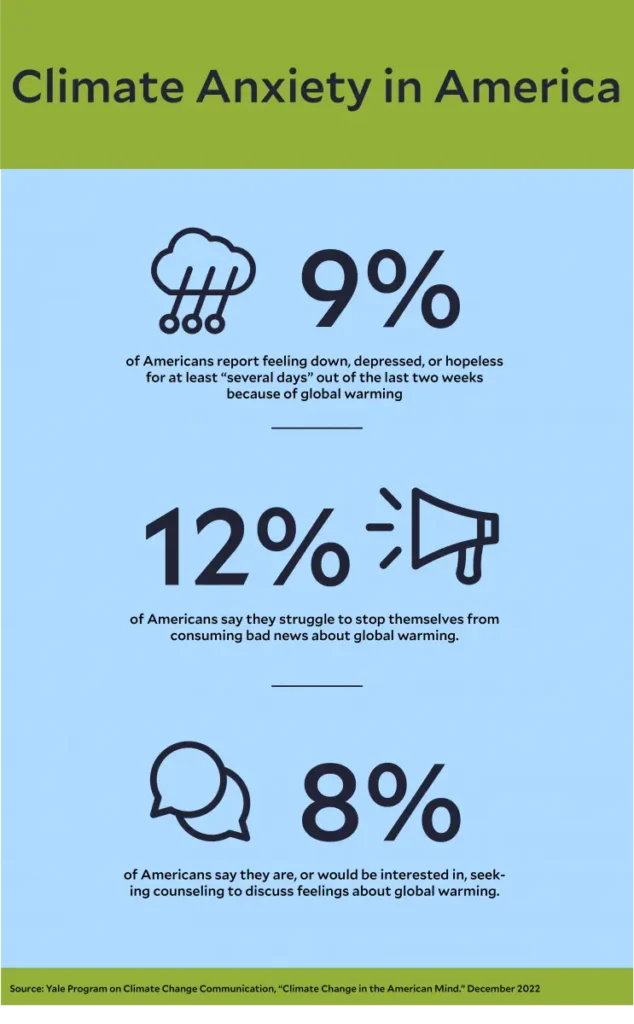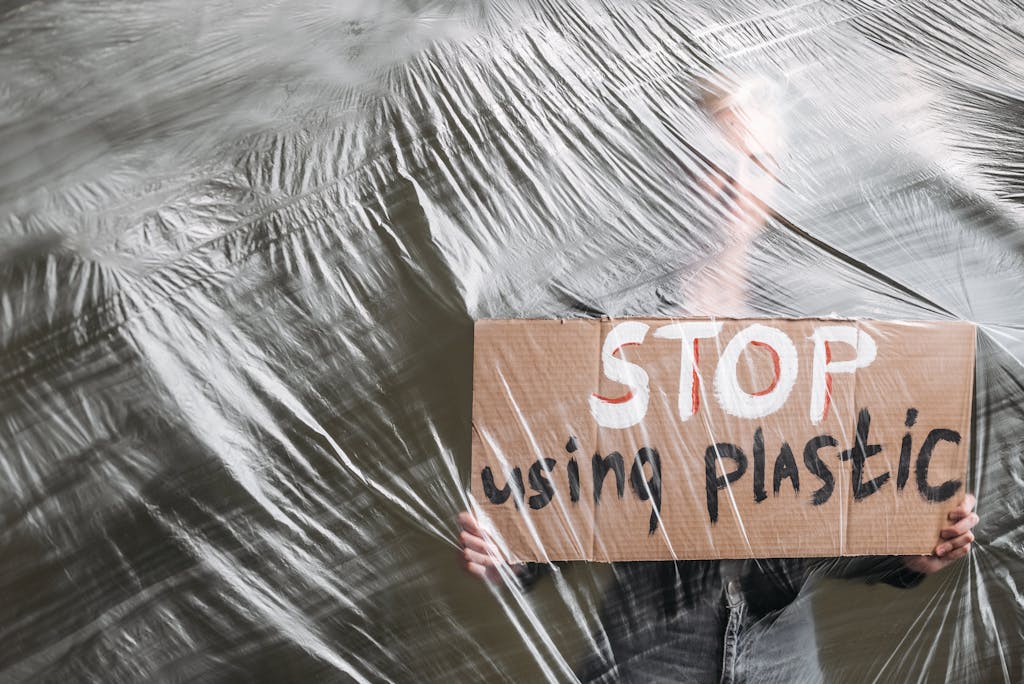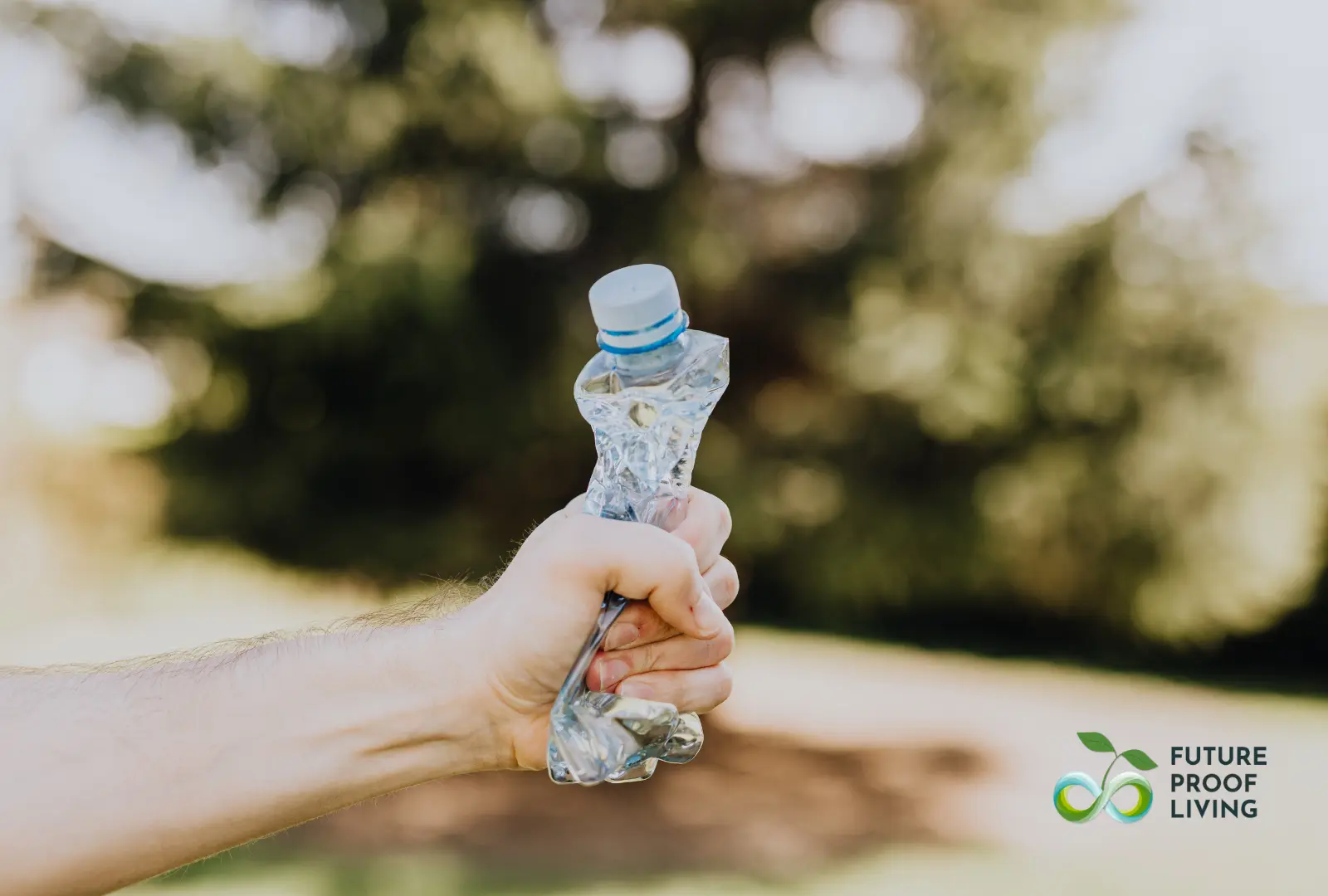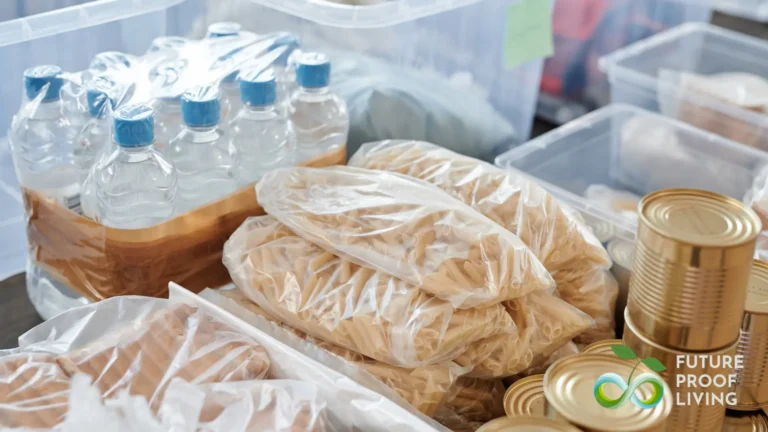You’re Not a Bad Person for Using Plastic – Here’s What Matters More
Eco-anxiety and plastic pollution are deeply connected. And they both contribute to a broader environmental crisis.
Eco-anxiety is a growing issue. 10% of Americans feel nervous or anxious about global warming several times a week, and 27% avoid thinking about climate change altogether.
Among younger people, 67% of Americans aged 18 to 23 worry about how climate change affects their mental health. On the other hand, plastic production is expected to double by 2040, and it’s concentrated in lower-income communities.
Almost 70% of people in the U.S. are concerned about climate change, with 51% feeling helpless.
Even though most people know the harm of plastic, systemic changes to cut plastic use are still limited. This leaves many feeling helpless and overwhelmed.
The real question is, how do we deal with eco-guilt and eco-anxiety without falling into despair?
You’re not a bad person for using plastic. What matters more is embracing progress over perfection in sustainability and focusing on practical, impactful changes.
The goal should be living in a way that balances personal responsibility with the broader need for systemic environmental change.

The Eco-Anxiety and Plastic Pollution Connection
How plastic pollution is framed in the media can worsen eco-anxiety, often highlighting crises without providing actionable solutions. Social media plays a significant role here, spreading awareness while sometimes amplifying feelings of helplessness, especially among younger generations.
The Problem with Eco-Guilt: Why Mindset Shifts Matter
It’s easy to feel guilty when you use plastic. But guilt rarely leads to change. Instead of spiraling into eco-anxiety, it’s better to adopt a mindful consumption habit. Sustainable self-compassion means recognizing that living sustainably doesn’t require perfection. It’s about making small, consistent improvements, not beating yourself up over every single-use plastic item you encounter.
Many people feel stuck in an all-or-nothing mindset. If they can’t go fully zero-waste, they feel like they’re failing.
But real sustainability isn’t about personal purity. It’s about making conscious choices where possible and recognizing that systemic change plays a bigger role than individual actions.
Guilt-driven sustainability often leads to burnout, making people feel like their efforts don’t matter. A progress over perfection sustainability mindset means acknowledging that even small steps like swapping out a single-use plastic for a reusable option are valuable.
Instead of dwelling on guilt, focus on eco-guilt solutions like:
- Set realistic sustainability goals that fit your lifestyle
- Make changes where they have the most impact. You don’t need to be PERFECT!
- Understand that plastic is sometimes necessary, like in healthcare and food safety
- Prioritize collective action over individual blame
Replace shame with environmental empathy. Understand that we all have different resources and capacities for change.
Systemic Change Over Personal Perfectionism
Reducing plastic use is important. However, the problem with this mentality that is focused on just personal plastic habits overlooks the larger, systemic issues. Corporate plastic responsibility and governmental plastic regulation power to reduce plastic waste at a much bigger scale than any one person can.
The reality is that just 100 corporations are responsible for 71% of global carbon emissions. Plastic pollution is primarily fueled by industrial production and poor waste management infrastructure.
Even if every person on Earth stopped using plastic straws tomorrow, it wouldn’t make a dent in the vast amounts of plastic dumped into the environment by large corporations.
Policy-driven sustainability is where real change happens. Governments and industries need to implement:
- Plastic bans and regulations on unnecessary single-use plastics
- Industrial waste reduction strategies that hold corporations accountable
- Circular economy solutions that encourage reuse and recycling
- Climate justice advocacy to support low-income communities affected by pollution

As consumers, we can support these efforts by:
- Voting for leaders who prioritize climate action
- Supporting brands committed to ethical consumerism
- Signing petitions and participating in collective climate action
- Holding companies accountable through sustainable consumer choices
Sustainability should be about systemic environmental change, not just individual guilt.
The Myth of Individual Responsibility in Plastic Waste
We’ve been told for decades that reducing plastic waste is an individual responsibility. But that’s a misleading narrative pushed by the same industries responsible for mass pollution.
The oil and plastic industries, for example, promoted recycling campaigns to shift responsibility onto consumers, even though most plastic isn’t actually recyclable. This allowed corporations to keep producing plastic at an unsustainable rate while making people believe they were the problem.
This way, individual responsibility often gets exaggerated. Also, the media loves to focus on individual choices, like not using plastic straws, but the real solution lies in systemic environmental change.

Let’s break down some key points:
The plastic vs. carbon footprint debate shows that the environmental impact of some plastic alternatives has a larger environmental impact due to energy and water use in production.
Biodegradable plastics aren’t a perfect solution. They still require industrial composting and can release harmful microplastics if not processed correctly.
Greenwashing awareness is important. Many brands claim to be “eco-friendly” while still relying on wasteful production methods.
Zero-waste privilege critique: Not everyone has access to zero-waste stores, farmers’ markets, or the ability to avoid plastic entirely. Sustainable living should be accessible for everyone, not just for the wealthy.
Instead of falling for the myth of individual responsibility, we must focus on impactful actions that pressure industries and policymakers to take responsibility.
High-Impact Alternatives to Plastic Perfectionism
Rather than stressing over every plastic item you use, focus on high-impact sustainability swaps that reduce waste without adding stress to your life. Here are a few low-waste lifestyle tips that are easy to adopt and can make a real difference:
- Switch to reusable alternatives to plastic, like Stainless steel water bottles, silicone food bags, cloth napkins, and reusable coffee cups
- Support plastic recycling innovations that turn waste into new products
- Use bulk buying strategies to reduce packaging waste
- Embrace secondhand shopping like secondhand clothing, furniture, and electronics instead of new items wrapped in plastic to lower demand for new plastic products
- Choose compostable packaging like paper-based, biodegradable, or compostable alternatives when available.
- Bring a repair culture movement by fixing and maintaining products instead of discarding them for new ones.
The goal isn’t to eliminate plastic entirely but to reduce dependence on it in ways that make sense.
Moving Beyond Plastic: What Else Matters for the Planet?
The true challenge of sustainability is looking beyond plastic. Reducing your carbon footprint through energy conservation, a plant-based diet, and supporting eco-friendly brands make a huge impact. Other eco-friendly habits include adopting sustainable transportation choices, using water-saving innovations, and renewable energy advocacy.
Small Steps, Big Impact: A Balanced Approach to Sustainability
Sustainability isn’t just about plastic. It is also not about achieving perfection. It’s embracing small steps for big impact. By focusing on what’s in your control and supporting larger collective climate action initiatives, you’ll feel empowered and not guilty.
Here’s how to practice sustainable living without shame:
- Set achievable sustainability goals instead of overwhelming yourself
- Recognize that every effort counts, even if it’s small
- Focus on collective climate action. Support policies, organizations, and initiatives that create systemic environmental change
- Accept that some plastic use is necessary, and THAT’S OKAY!
Guilt and shame don’t create change. Empowerment does.
Instead of stressing over plastic use, shift your focus to what actually moves the needle. Reducing carbon emissions, advocating for corporate responsibility, and making practical, impactful changes.
You’re not a bad person for using plastic. What matters more is taking action and creating lasting change.

